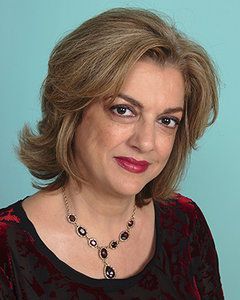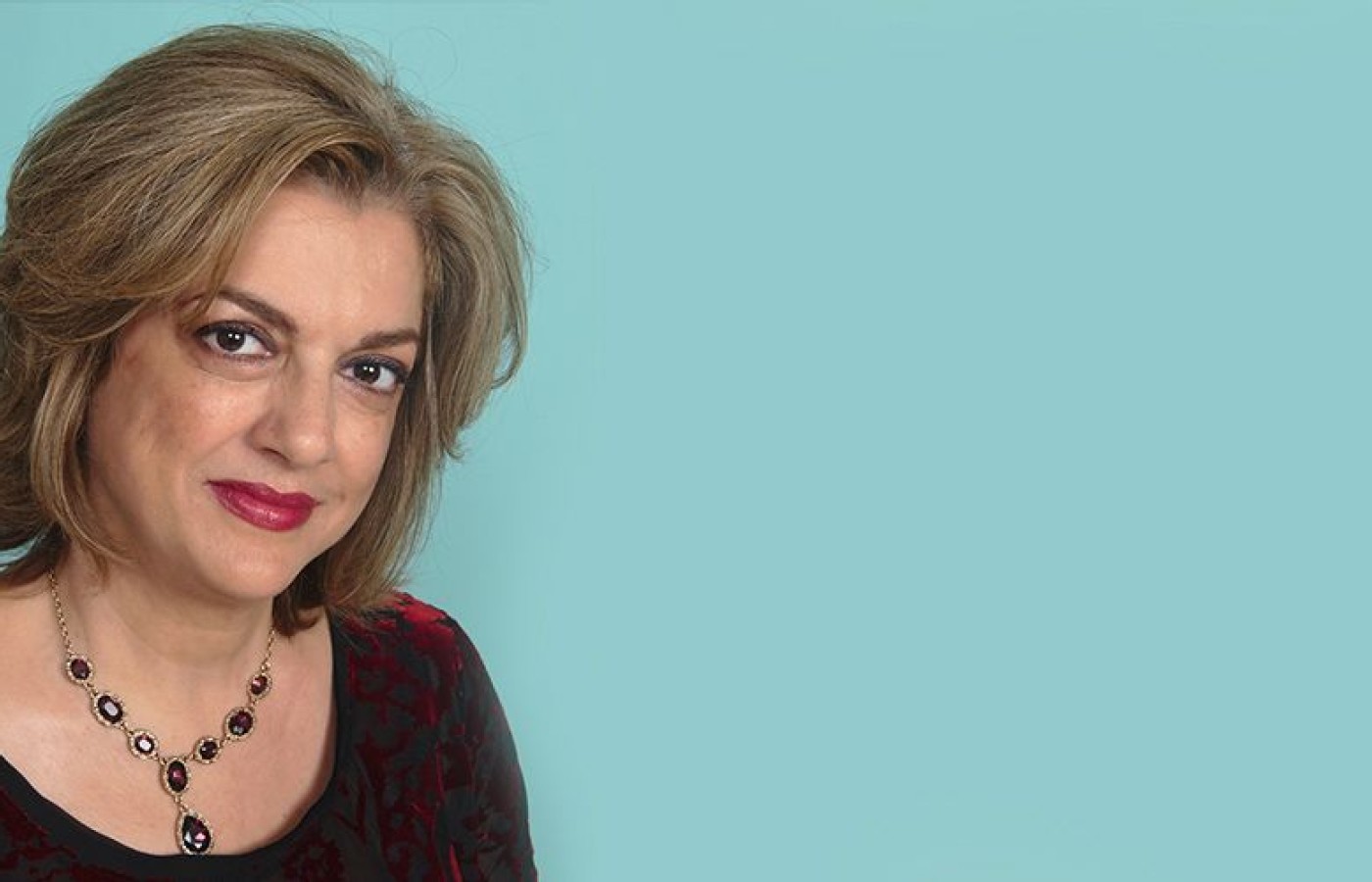The most important relationship I seek to nurture in the treatment room is the one a patient has with their own body. We live in a culture that teaches us to override pain, defer to outside authority, and push through discomfort. Patients often arrive hoping I can “fix” them, but the truth is, we can’t do the work for them. We can offer guidance, insight and support, but healing requires their full participation.
Practitioner- and Profession-Centric: Q&A With New NCCAOM CEO Mina Larson
Some may feel the departure of longtime National Certification Commission for Acupuncture and Oriental Medicine (NCCAOM) CEO Kory Ward-Cook ended an era, but the announcement of Mina M. Larson, MS, MBA, CAE, as the organization's new CEO ushers in a new one that bodes well for both the commission and the AOM profession overall. Let's learn more about Mina and her vision in this exclusive interview.
Q: What is the biggest challenge – and opportunity – facing the AOM profession?
A. This is a pivotal time for our profession. As the demand for our medicine is growing, our profession should be as well. Unfortunately, fewer acupuncturists are entering and staying in the field, as acupuncture is increasingly being used as an adjunct modality by chiropractors, physical therapists and others with abbreviated education/training. This is where public education plays an important role to inform consumers about the education, training and assessments necessary for nationally board-certified and licensed acupuncturists.

Our biggest strength is the depth and breadth of training, and we do not highlight it enough. No one asks if an MD is licensed – they ask if she/he is board certified. The opioid crisis is a perfect opportunity for acupuncturists to be at the forefront of treating those suffering from pain and addiction. The increase in consumer use and well-supported research of acupuncture for pain management shown to be successful in reducing or even eliminating opioid prescriptions for acute and chronic pain patients should be expanding access to acupuncture. However, challenges include a lack of collaborative effort to work together to brand our medicine and fractionization of groups within the AOM community that have different focuses.
Q: How can practitioners, aside from optimizing their practices, truly get involved ? What are three specific actions they can take?
A: If every practitioner made a concerted effort to promote and advance the medicine and their credentials at the local level, this would go a long way to educate the public, regulations, other health care practitioners and the media on the benefits of AOM, and it would increase their business as well. We recommend three ways you can do this and have provided resources to help you along the way:
- Network! Take the time to attend and participate community events where you can network and provide information about what you do, and proudly display and speak about your credentials. Be certain to include your NCCAOM National Board-Certification™ on your business cards and marketing materials to distinguish you from the practitioners who have abbreviated acupuncture or dry needling training. Always dress professionally and bring brochures, business cards and information about your certification and your practice. Our staff can also send you your certification service mark that you can use to promote yourself. Additionally, you can go to the NCCAOM website under Diplomate Benefits for brochures and other marketing information to download free of charge.
- Invite the Media! Hold an event at your clinic and send out a press release or media advisory to the local media (local newspaper, magazines, TV stations and radio), inviting them to the event. Teach a free class on stress relief or another health topic, or provide free treatments as part of an event to highlight a particular issue. There is strength in numbers, so mobilize your state association to pool your resources. Everyone will benefit from the publicity of doing something positive.
- Get to Know Your Legislators! Schedule an appointment with your state and federal representatives. Distinguish your credentials and the impact of your practice helping their constituents stay healthy. Ask them to partner with you to create greater access to AOM. (The NCCAOM has an Advocacy Toolkit available for this purpose.)
Q: In what way do you think your political background will benefit the NCCAOM and the profession as a whole? Why is this important for the future of the AOM profession?
A: During my 16 years with the NCCAOM, I have worked hard to support our board and leadership team to improve our examination development and administration process, as well as strengthen our infrastructure. Now as CEO, I have the background and knowledge to navigate the political landscape at the federal and state level to advance our medicine.
I have been working since 2003 to provide information to state regulators for the development of first practice acts and other regulatory advancements for AOM profession. My previous background working for the California legislature and the executive branch, along with years of experience working in press offices and as a journalist, has helped me tremendously in our work at the state level. This experience is what is needed to get our profession in the frontline of the U.S. health care system.
NCCAOM's headquarters move to Washington, D.C., was a step in this direction. It enables us to work with government relations experts, and have access to the political and policy decision-makers to advance AOM and create greater access.
Q: What would you like to accomplish in your first year as CEO at the NCCAOM?
A: These first few months, I have been focusing on listening and learning from our diplomates, AOM students and to other stakeholders. We recently sent out a nationwide Diplomate Satisfaction Survey to our 18,000-plus diplomates get their input so that we can build our strategic plan revolved around their needs.
During my first few months, I have already presented at various AOM schools, providing information about NCCAOM, as many students and even faculty are unfamiliar with our mission and what we do. This has also allowed me the opportunity to listen to hopes, aspirations, challenges of those who will be the future of our medicine. These types of activities are part of the public education that I will continue to do within our AOM community, to the public and the media about the NCCAOM.
I am also working with our dedicated Board of Commissioners and staff to streamline the NCCAOM certification renewal process and enable former diplomates to return to active status through a less restrictive process while adhering to the National Commission for Certifying Agencies (NCCA) Standards. It is important to note that NCCA accredits our certification programs. More to come on that soon!
Q: How do you hope to pioneer more job opportunities for graduates?
A: I recognize the major issue of finding viable jobs after students graduate from school and become licensed, so I am working with our staff on creating a Career Center that will help NCCAOM diplomates locate available jobs as well as allow employers to post jobs. Part of this Career Center will also have resources and references for those wanting to start their own private practices, build resumes, understand the regulatory landscape around the country, etc.
We do recognize there are some resources available now – the reality is that those in our profession and those entering it need as much help as possible. We also need to create additional resources for employers, such as Veterans Affairs and hospitals, to hire acupuncturists. This is one of the outcomes of our advocacy work and one of our strategic goals.
Q: We recently published an article, "The Power of Shared Vision," by the Academic Collaborative for Integrative Health's executive director, Alyssa Wostrel, which discusses NCCAOM collaboration on several projects. Are there plans to work with any other acupuncture groups in the near future?
A: Collaboration within the profession is key – especially within the AOM organizations. The NCCAOM is continuing this collaboration with the Academic Collaborative for Integrative Health via an informative webinar later this year. We continue to dialogue and work with AOM leader organizations to plan for the future of our profession. This is already happening with NCCAOM, the Accreditation Commission for Acupuncture and Oriental Medicine (ACAOM) and the Council of Colleges for Acupuncture and Oriental Medicine (CCAOM), the educational and standard-setting organizations, to increase collaboration through strategic discussions such as recruitment of acupuncturists entering the profession.
We also collaborate with American Society for Acupuncturists (ASA), and support its member state associations and other non-member state associations whenever possible. Our support of state associations and their members is important – public education and advocacy are two areas we can synergize.
We also work closely with the Integrative Health Policy Consortium (IHPC) through IHPC Board Director, Bill Reddy [an AT columnist]. In addition, we participated in the Society for Acupuncture Research (SAR) conference in Vermont this past June as part of its Patient-Centered Outcomes Research Institute (PCORI) project. We welcome opportunities for further collaboration, and this includes working with other health care organizations outside the profession.



